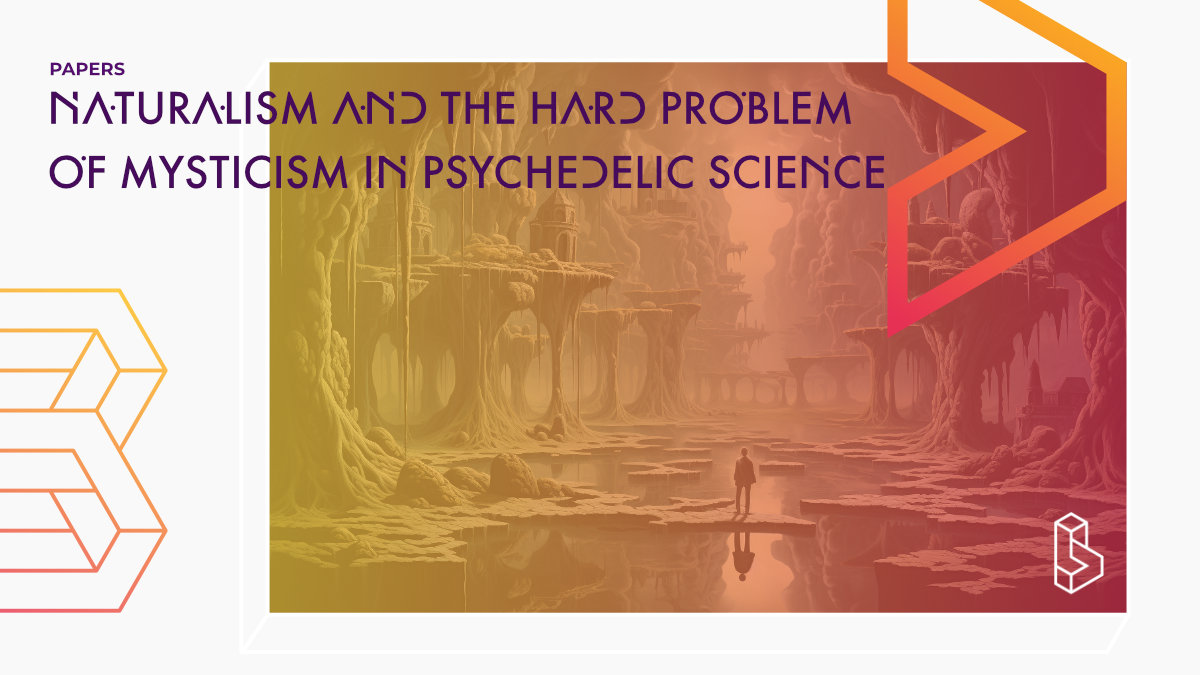This philosophical article (2024) discusses the compatibility of mystical-type experiences induced by psychedelic substances with naturalism. The author suggests that while mystical insights may align with naturalism by considering the ultimate nature of reality as observation-independent, accessing the fundamental nature of all reality remains a challenging “hard problem.” Psychedelics are proposed to enhance awareness of consciousness and the limitations of our reality models, but it is unclear if they provide access to the fundamental nature of all reality. In conclusion, the author contends that mystical-type conceptions about reality may coexist with naturalism but are generally unverifiable, similar to many metaphysical theses.
Abstract of Naturalism and the hard problem of mysticism in psychedelic science
“Psychedelic substances are known to facilitate mystical-type experiences which can include metaphysical beliefs about the fundamental nature of reality. Such insights have been criticized as being incompatible with naturalism and therefore false. This leads to two problems. The easy problem is to elaborate on what is meant by the “fundamental nature of reality,” and whether mystical-type conceptions of it are compatible with naturalism. The hard problem is to show how mystical-type insights, which from the naturalistic perspective are brain processes, could afford insight into the nature of reality beyond the brain. I argue that naturalism is less restrictive than commonly assumed, allowing that reality can be more than what science can convey. I propose that what the mystic refers to as the ultimate nature of reality can be considered as its representation- and observation-independent nature, and that mystical-type conceptions of it can be compatible with science. However, showing why the claims of the mystic would be true requires answering the hard problem. I argue that we can in fact directly know the fundamental nature of one specific part of reality, namely our own consciousness. Psychedelics may amplify our awareness of what consciousness is in itself, beyond our conceptual models about it. Moreover, psychedelics may aid us to become aware of the limits of our models of reality. However, it is far from clear how mystical-type experience could afford access to the fundamental nature of reality at large, beyond one’s individual consciousness. I conclude that mystical-type conceptions about reality may be compatible with naturalism, but not verifiable.”
Authors: Jussi Jylkkä
Summary of Naturalism and the hard problem of mysticism in psychedelic science
Introduction
Psychedelic substances are known to facilitate mystical-type experiences, which may include metaphysical insights about the fundamental nature of reality, not attainable by the senses or intellect. Naturalistically oriented scientists and philosophers might consider such insights as unscientific and, therefore, false.
The advocates of the mystical approach would hold that at least some types of psychedelically facilitated metaphysical insights can be true, and that they can have therapeutic potential. Several contemporary philosophers are taking mystical experiences seriously and are attempting to give them consistent conceptualizations. Peter Sjöstedt-Hughes and Steve Odin argue that 5-MeO-DMT induces a satori experience and that LSD-induced experiences can reveal the Buddha-nature of reality.
Find this paper
Naturalism and the hard problem of mysticism in psychedelic science
https://doi.org/10.31234/osf.io/gxuv6
Open Access | Google Scholar | Backup | 🕊
Cite this paper (APA)
Jylkkä, J. (2023). Naturalism and the hard problem of mysticism in psychedelic science.

